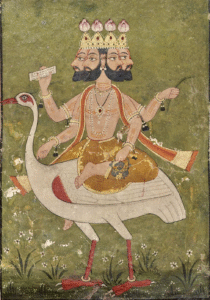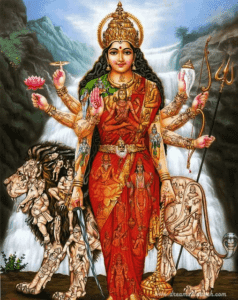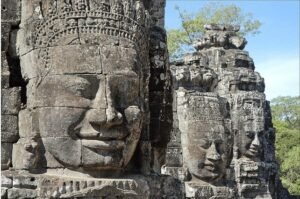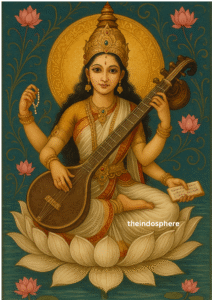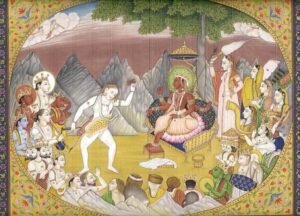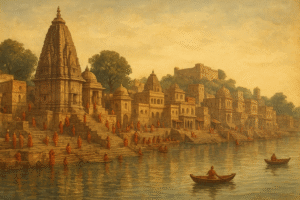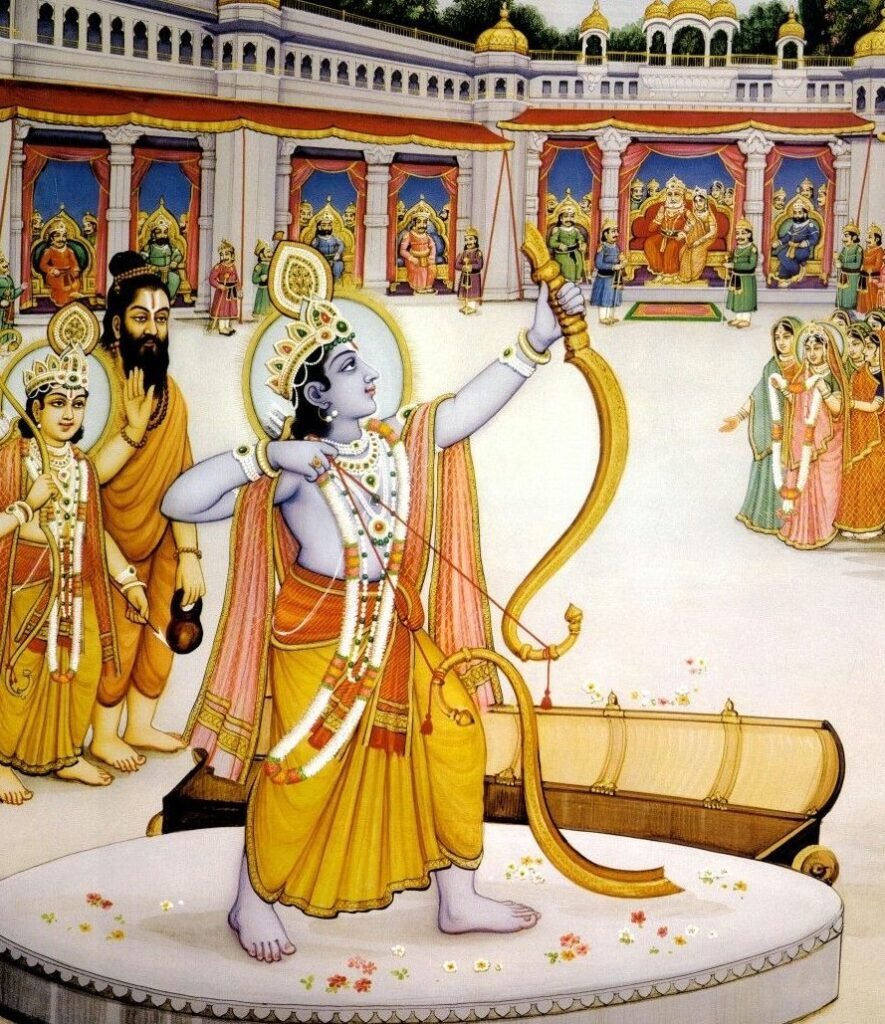
50 Frequently Asked Questions About Hinduism
Here is an expanded list of 50 frequently asked questions about Hinduism that cover Core Beliefs and Concepts, Practices and Rituals, Sacred Texts and Literature, Dietary and Lifestyle Practices and Cultural and Historical Aspects.
What is Hinduism?
Hinduism is one of the oldest religions, characterized by a diversity of beliefs and practices.
Who are the main gods in Hinduism?
The main gods include Brahma (the creator), Vishnu (the preserver), and Shiva (the destroyer).
What is the concept of Brahman in Hinduism?
Brahman is the supreme, unchanging reality, the source of all existence.
Do Hindus believe in one God or many gods?
Hinduism encompasses both monotheistic and polytheistic elements, seeing all deities as manifestations of one Supreme Being.
What is the significance of the Trimurti (Brahma, Vishnu, Shiva)?
The Trimurti represents the cycle of creation, preservation, and destruction in the universe.
What is the Hindu concept of Karma?
Karma refers to the law of cause and effect, where a person’s actions influence their future.
How does reincarnation work in Hindu beliefs?
Hindus believe in a cycle of birth, death, and rebirth, where the soul is reincarnated until it achieves liberation.
What is Dharma in Hinduism?
Dharma is the moral law that guides a person’s actions according to their duties and responsibilities.
What is the Hindu view of the soul (Atman)?
The Atman is the eternal soul or self, which is identical with Brahman.
How do Hindus achieve Moksha (liberation)?
Moksha is achieved by realizing the unity of the Atman and Brahman, often through knowledge, meditation, or devotion.
What is the significance of the varna system in Hinduism?
The varna system is a social hierarchy traditionally linked to one’s duties, though its rigid application has diminished in modern times.
How does Hinduism view other religions?
Hinduism generally holds a pluralistic view, accepting the validity of different paths to the divine.
What is the Hindu concept of Ahimsa (non-violence)?
Ahimsa is the principle of non-violence, central to Hindu ethics and spirituality.
What is Maya in Hindu philosophy?
Maya refers to the illusion or ignorance that prevents individuals from realizing the true nature of reality.
What role do rituals play in Hindu worship?
Rituals are central to Hindu worship, offering a means to connect with the divine and maintain cosmic order.
What is the purpose of meditation and yoga in Hinduism?
Meditation and yoga are practices aimed at achieving spiritual insight and self-realization.
How do Hindus view life after death?
Life after death is seen as a transition in the cycle of reincarnation, with the soul taking on a new body.
Why do Hindus worship idols or images?
Idols and images serve as symbolic representations of the divine, making worship more accessible.
What is the significance of temple worship in Hinduism?
Temples are sacred spaces where the divine presence is believed to be strong, offering a place for communal worship.
What are the major Hindu festivals and their significance?
Major festivals include Diwali, Holi, and Navaratri, each celebrating different aspects of Hindu mythology and seasonal changes.
Why do Hindus celebrate Diwali?
Diwali, the festival of lights, celebrates the victory of light over darkness and good over evil.
What is Holi and why is it celebrated?
Holi is a spring festival celebrating love and the triumph of good over evil, often involving colorful powders and water.
What is the significance of Raksha Bandhan?
Raksha Bandhan is a festival celebrating the bond between brothers and sisters.
Why do Hindus perform rituals like Puja?
Puja is a daily ritual of offering prayers, food, and flowers to deities, expressing devotion and reverence.
What is the meaning behind Hindu marriages?
Hindu marriages are sacramental unions performed with elaborate rituals, symbolizing the joining of two souls.
Why do some Hindus wear a tilak or bindi?
The tilak or bindi represents the third eye, symbolizing spiritual insight and divine protection.
What are the sacred symbols in Hinduism (e.g., Om, Swastika)?
Om represents the primordial sound of the universe, while the Swastika symbolizes auspiciousness and prosperity.
What is the significance of the cow in Hindu culture?
The cow is revered as a symbol of non-violence, fertility, and motherhood.
Why do Hindus fast and what are the different types of fasting?
Fasting is a practice of self-discipline and devotion, with various forms, including Ekadashi and Karva Chauth.
What is a Yagna, and why is it performed?
Yagna is a sacrificial ritual involving offerings to deities, performed to maintain cosmic order and gain blessings.
What are the key elements of a Hindu wedding ceremony?
A Hindu wedding involves rituals like Kanyadaan (giving away of the bride), Mangal Fera (circling the sacred fire), and Saptapadi (seven steps).
How do Hindus celebrate birth and death?
Birth is celebrated with rituals like the naming ceremony, while death is marked by cremation and rites aimed at ensuring a peaceful transition of the soul.
What are the main holy texts of Hinduism?
The main texts include the Vedas, Upanishads, Bhagavad Gita, Ramayana, and Mahabharata.
What is the Bhagavad Gita?
The Bhagavad Gita is a philosophical dialogue between Lord Krishna and the warrior Arjuna, addressing duty, righteousness, and devotion.
What are the Vedas and why are they important?
The Vedas are the oldest sacred texts, containing hymns, rituals, and philosophical teachings foundational to Hinduism.
What are the Upanishads?
The Upanishads are philosophical texts that explore the nature of reality, the self, and the ultimate truth (Brahman).
What is the Ramayana about?
The Ramayana is an epic that narrates the life and adventures of Lord Rama, highlighting the ideals of duty and righteousness.
What is the Mahabharata?
The Mahabharata is an epic recounting the Kurukshetra War and the moral dilemmas faced by its characters, including the Bhagavad Gita.
What is the significance of the Puranas?
The Puranas are texts that provide mythological stories, traditions, and teachings related to Hindu gods, history, and cosmology.
Who are the sages and saints in Hinduism?
Hinduism reveres sages like Vyasa and Valmiki, and saints like Adi Shankaracharya and Ramakrishna, who have contributed to its spiritual and philosophical teachings.
Why are many Hindus vegetarians?
Many Hindus are vegetarians due to the principle of Ahimsa (non-violence), which discourages harm to living beings.
What is the significance of offering food to gods?
Offering food to gods, known as Naivedya, is a gesture of gratitude and devotion, which is later shared as Prasadam.
What is Prasadam in Hindu practice?
Prasadam is the blessed food offered to and accepted from deities, considered to be imbued with divine grace.
Why do some Hindus avoid eating certain foods like garlic and onions?
Garlic and onions are avoided by some due to their tamasic (impure) qualities, believed to increase ignorance and lethargy.
How does Hinduism influence daily life and habits?
Hinduism influences daily life through rituals, dietary practices, and ethical principles like non-violence, truthfulness, and respect for all life.
Why is the Ganges River considered sacred?
The Ganges is considered sacred because it is believed to purify sins and provide spiritual liberation.
How did Hinduism originate and evolve?
Hinduism originated in the Indian subcontinent, evolving over thousands of years from the ancient Vedic traditions to a complex system of beliefs and practices.
What are the key differences between Hinduism and other major religions?
Hinduism differs in its pluralistic approach, cyclical view of time, belief in reincarnation, and the emphasis on Dharma and Karma.
How does Hinduism influence Indian culture and society today?
Hinduism continues to shape Indian culture, art, law, and daily life through its festivals, rituals, and ethical values.

